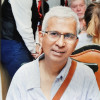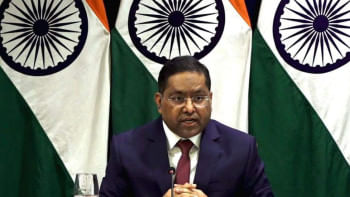‘The only constant in life is change’

On November 29, 2019, The Daily Star announced the demise of its Star Weekend magazine and the birth of Toggle, quoting Heraclitus as a justification, but without giving him due credit.
It was Heraclitus of Ephesus (c.535-475 BCE), a pre-Socratic Greek philosopher, who said "Panta rhei", or "everything flows", meaning everything or all things change. This is further explained in everyday English, for the benefit of the common people like us, as "the only constant in life is change".
So, change is inevitable. But are all changes for the better?
The last few decades have witnessed massive changes in the world we live in. Science and technology have taken giant leaps that have surpassed all developments made since the start of civilisation, by a large margin. The world has transformed from being bipolar to unipolar, then quickly to multipolar. War has been privatised by the presence of so many terrorist outfits that we have lost track of who is affiliated to whom and who is real and who is perceived. News has become divided into two types: real and fake. As it appears, even photographs and videos can be faked to an extent that only experts can tell them apart. A group of people as far as in the Middle East or Afghanistan can be killed with a mere video game-like software in Pentagon! With no accountability.
The United States of America has abandoned its role as the "leader of the free world". Instead, it has made "America only" its official policy in every sector: trade, foreign policy, science and technology, military, environment, etc. They have been doing this all along but, before, there was a veneer of modern liberal values to hide it. But this is no longer the case.
The United Kingdom, despite being a nation that led the world in the industrial revolution and produced a long line of great thinkers, scientists, leaders, philosophers, writers and economists, has decided to abandon the rest of Europe and tow along the isolationist line of the USA. They were for a long time considered a junior partner of their richer cousin, but now they have decided to throw away the façade of Europeanness as an official policy. Seeing this, William Shakespeare would have written an excellent piece of comedy, or Adam Smith a new edition of his "Wealth of Nations", had they been alive today.
The nations that once took pride in leading the human civilisation have all shrunk to become Lilliputs of the "Gulliver's Travels". Their bodies remain big but the hearts and minds have given in to narrow and abrasive nationalism, so much so that they can't even tolerate a little difference of opinion or another faith, culture or ethnicity, let alone dissidence. Where are we heading, really!?
India is a lucky nation. Its sages gave them a strong guiding principle many centuries ago, a privilege enjoyed by only a few nations of the world. But that was an India of diversity and tolerance. Rigveda, an ancient Indian sacred canonical text of Hinduism, written somewhere between 1500 and 1200 BC, states, "Let there be oneness in your resolutions, hearts and minds; let the determination to live with mutual cooperation be firm in you all." While the Indian sub-continent is still reeling from the shock and horror of its partition and paying the price, the supposed safekeepers of Hinduism have decided to abandon the core of its ancient values and constitutional obligation, and reopened the wounds of 1947. This is another change, with potentially disastrous consequences.
China is almost as old as the history of civilisation itself. Emperor Qin Shi Huang unified all of China and founded a modern state with legal systems, scientific standards and a centralised bureaucracy. The 2008 Summer Olympics opening ceremony comprised two parts titled "Brilliant Civilisation" highlighting the Chinese civilisation and "Glorious Era" showcasing modern China and its dream of harmony between the people of the world. The Chinese dream of harmony, however, is now mired in controversy, with many observers pointing out the heavy-handedness of its dealing with smaller nations and its own minorities.
We never learn from history, and that is also a lesson of history. Throughout the history of mankind, great nations usually followed some sort of openness and inclusiveness in their policy, and their downfall almost always coincided with the abandonment of those policies. A notable example of this is the fall of the Arabs in the Iberian Peninsula, when they were wiped out by the conquistadors of Spain during the 15th century.
The world seems to have forgotten that violent nationalism and religious intolerance in one country are likely to stoke up a similar environment of hatred and intolerance in other countries as well, with no apparent connection with the source country. Neil Thompson wrote in a column for The Diplomat about how extremists in Asia are feeding off each other's unrelated conflicts ("Terrorism in Asia: The Global Village Effect", August 1, 2018). While nations are drifting apart with their own narrow agenda, terrorist outfits are taking advantage of that, uniting in their efforts to undermine people's freedom and the right to live.
But there is hope. In a wider interpretation, "Panta rhei" means "the way up and the way down are one and the same. Living and dead, waking and sleeping, young and old, are the same." These things are the "same" in that they are all subject to change, arise from one change to vanish into another and all things, constantly, are in flux and are, in that regard, the same. Will Toggle again change into something better? Let's hope so.
Sayeed Ahmed is a consulting engineer with experience in infrastructure project management in South Asia.


 For all latest news, follow The Daily Star's Google News channel.
For all latest news, follow The Daily Star's Google News channel. 



Comments